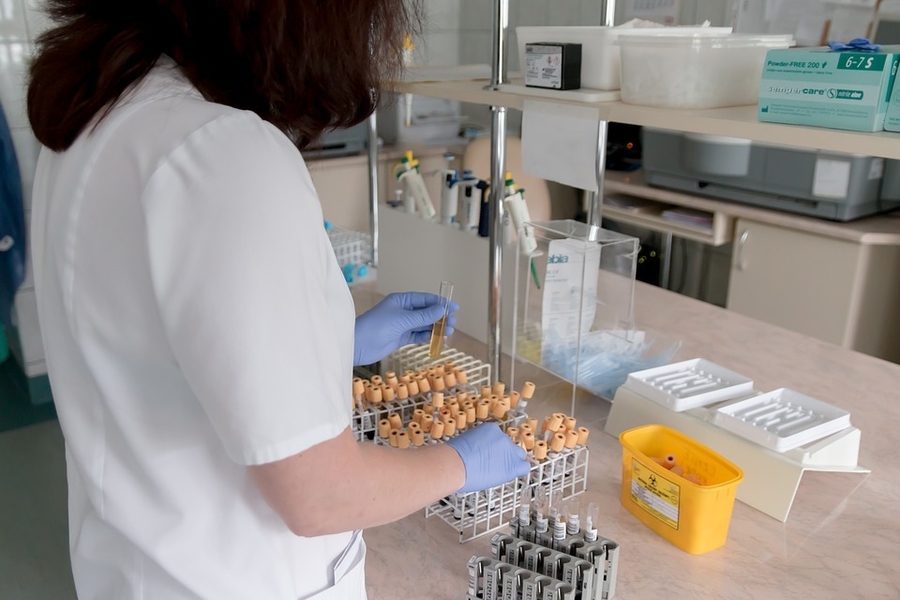
Screening Tests Recommended For Every Mom During First Trimester Of Pregnancy
29 Mar 2018 | 4 min Read
Dr Priti Thakor
Author | 2 Articles
Ensuring the health and wellbeing of the mother and the baby is essential and pregnancy blood tests are one of the ways to do just that.
During pregnancy, you might encounter certain conditions which can increase the risk of complications for you or your baby. Fortunately, there are a number of blood tests during pregnancy (pregnancy blood tests), which can help detect these conditions well in advance, thereby reducing the risk of complications. These tests are specific to every trimester of pregnancy. Here we will discuss the tests done during pregnancy first trimester.
First trimester screening blood test
The routine blood tests recommended during the first trimester of pregnancy include:
1. Complete blood count (CBC)
A CBC is the most basic pregnancy blood test and gives information about the numbers of different types of cells making up our blood. It is commonly done to diagnose anaemia, a condition with low haemoglobin. It also gives information about the body’s resistance against infections by checking the number of white blood cells and detects clotting defects of blood by checking number of platelets.
2. Blood typing (Blood grouping)
A protein present on the surface of red blood cells is called Rh factor. It can be present (Rh positive) or absent (Rh negative) in different individuals. In case you are Rh negative, and your baby is Rh positive , then it can lead to incompatibility. Antibodies are produced by the mother’s body against the Rh factor on the baby’s red blood cells. This usually does not affect the first pregnancy. However, it can cause significant damage to a baby in a future pregnancy and should be checked without fail.
3. Tests for Sexually transmitted infections (STIs) and Human immunodeficiency virus (HIV)
Pregnant women should be screened for sexually transmitted diseases like syphilis and chlamydia and acquired immunodeficiency syndrome (AIDS) early in pregnancy as these diseases can cause complications for both the mother and the baby. If the expectant mother is detected to be HIV positive, medication can be given to her to greatly reduce the risk of transmitting HIV to the baby.
4. Tests for Rubella, Hepatitis B and hepatitis C, and Tuberculosis (TB).
Rubella infection during pregnancy can cause birth defects, whereas Hepatitis B and hepatitis C viruses can pass be passed on to the foetus during pregnancy. To reduce the baby’s risk by adequate treatment, pregnant women should be tested for these conditions. Women with high risk of acquiring TB should also be tested for TB.
Urine culture and urinalysis
Apart from blood tests, first trimester screening tests includes urine pregnancy tests, urine culture and urinalysis.
1. Urine pregnancy tests:
Beta subunit of human chorionic gonadotropin (beta-HCG) is generally checked by this test and it is usually positive within one week of missed periods. It confirms the pregnancy.
2. Urinalysis:
Your urine may be tested for the following:
- Presence of red blood cells to rule out urinary tract diseases.
- White blood cells to rule out urinary tract infection.
- Presence of glucose to rule out diabetes mellitus.
- Protein levels in early pregnancy and late pregnancy are compared to assess the possibility of preeclampsia. Preeclampsia is a serious complication that usually occurs later in pregnancy or post-delivery.
3. Urine culture
Presence of bacteria in urine is indicative of an infection, which needs treatment.
1st trimester screening tests
Tests in first trimester also include an ultrasound scan which should be carried out between 10 weeks to 13 weeks. This gives you a brief idea of your expected due date, number of babies and acts as a part of a screening test for abnormalities.
Diagnostic blood test during pregnancy.
Diagnostic tests are used to detect certain birth defects. If you have a family history of a birth defect, or you belong to a risk-prone ethnic group, diagnostic testing may be indicated. However, a few of these tests involve few risks, including a small risk of miscarriage. Hence, these are not recommended for all pregnant women. Chorionic villus sampling is one such test, which can give information about chromosomal abnormalities in the foetus.
Although pregnancy blood tests might feel troublesome, they are solely for your and your child’s benefit. It is best to follow your doctor’s advice regarding these for a healthy pregnancy.
Disclaimer: The information in the article is not intended or implied to be a substitute for professional medical advice, diagnosis or treatment. Always seek the advice of your doctor.



Also read: Screening Tests Recommended For Every Mom During Second Trimester Of Pregnancy
A


Related Topics for you
Suggestions offered by doctors on BabyChakra are of advisory nature i.e., for educational and informational purposes only. Content posted on, created for, or compiled by BabyChakra is not intended or designed to replace your doctor's independent judgment about any symptom, condition, or the appropriateness or risks of a procedure or treatment for a given person.
